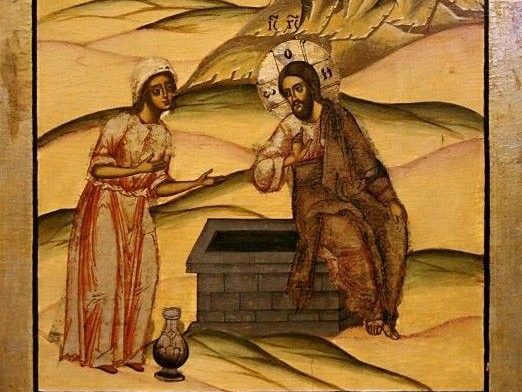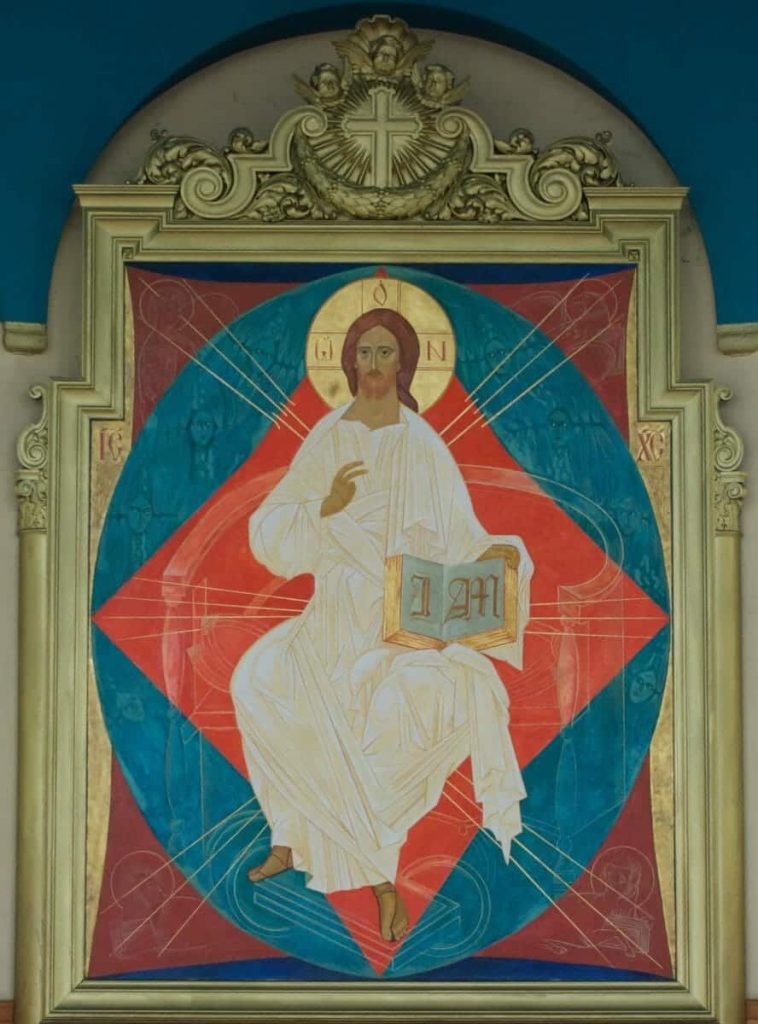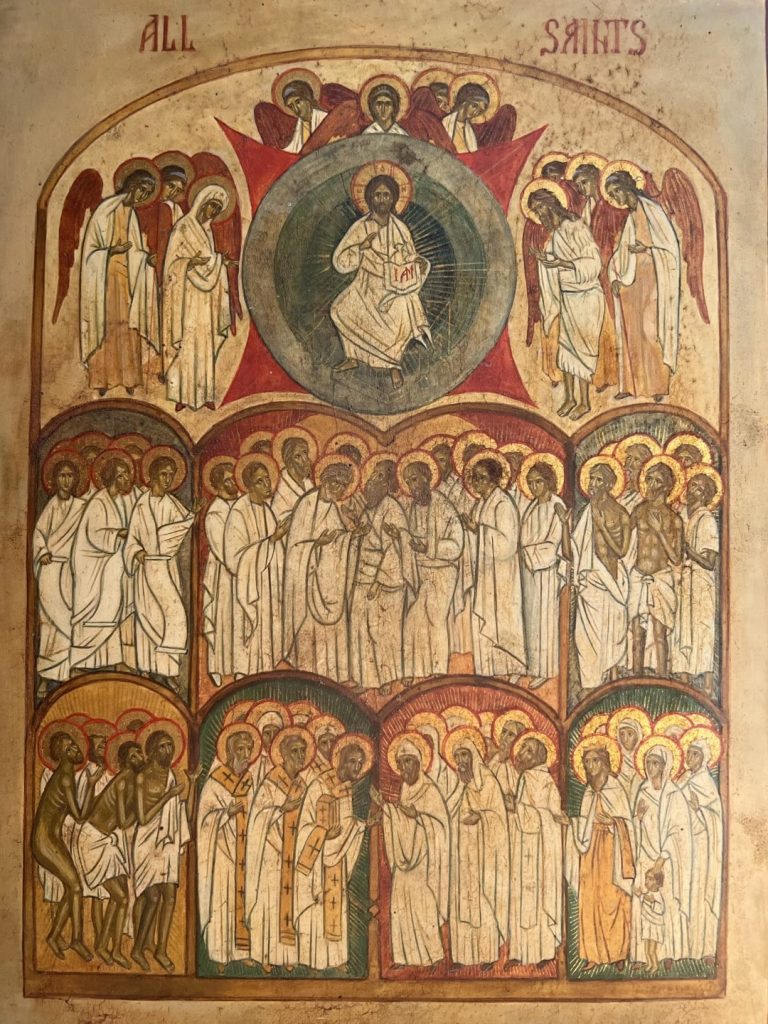Sermon on the Sunday of the Samaritan Woman

The Gospel which we heard today in the Liturgy1John 4:7-34. describes the encounter of the Samaritan woman, Photini, with the Lord by Jacob’s well. Jacob was an Old Testament figure that had struggled to understand the judgments of God and to attract His blessing, and God revealed to him the vision of a ladder which united heaven and earth, and upon which the angels of God ascended and descended.2see Gen. 28:12. This ladder is Christ Himself, and we marvel to see how, through His divine Word, the Lord grants His ascents to the heart of this Samaritan woman who was completely alienated from God yet expecting the coming of the Messiah. Christ discerned this desire of her heart and lifted up her mind from things earthly to things heavenly. For it is the property of the word of Christ to transfer our mind from things visible to things invisible, beyond the veil that separates heaven from the earth. Today, Christ turned the mind of this woman from the material water to the living, heavenly water, which is His grace, and to the true worship of God ‘in spirit and in truth’. Finally, He even revealed Himself as the true Messiah. ‘I that speak unto thee am the Messiah’.3John 4:26.
Yet, as a good Sower, the Lord continued sowing His seed in the hearts of His apostles as well. When they approached Him saying, ‘Master, eat!’, He immediately begins to work in them with His word, saying, ‘I have meat to eat that ye know not of. My meat is to do the will of Him that sent me, and to finish His work.’ Thus, He shifted their minds to an invisible realm, which they could not yet comprehend. Then He goes on to do something even greater: In order to serve this woman and accomplish in her the work of His Father, the Master Christ placed Himself lower than her, appearing to be in need of her service and saying, ‘Give me to drink.’ Likewise, He wants to transmit the same mind in His apostles, saying to them, ‘Ye reap that which ye have not laboured for. Others have laboured and ye enter into their labour.’ Through this word, He humbles His disciples and stirs up gratitude in their hearts, so that they do not despise the Samaritans and all the heathen whom they will be called to serve. For through gratitude, we do not hinder the harvest of God.
This Gospel gives us the opportunity to rekindle in our hearts a very precious awareness, that when we began our life in the Church, we entered into the labours of others, we did not find the way on our own. Others have laboured to bring us into the Church of Christ and to give us new life. In our Church we have fathers and children, not masters and servants. St Paul depicts this truth when he says, ‘I have given birth unto you through the Gospel in Jesus Christ’.4cf. 1 Cor. 4:15. Gratitude for the labours of our Fathers will lead us to a rich harvest in our life. This harvest is the way wherein we will justify their labours. Even the Lord said, ‘Herein is my Father glorified, that ye bear much fruit’.5John 15:8. The Psalm prophesied about the Lord, ‘The zeal of Thine house hath eaten me up’,6Ps. 69:9. and His house are we.7Heb. 3:6. So much He was consumed by His zeal that He even bequeathed to us His Body and His Blood in the Sacrament of the Eucharist. This may sound strange and paradoxical, but man is also able to satisfy God’s thirst for our salvation. And we satisfy His thirst and His hunger by opening our heart and offering it to Him. Then, we will not be brought to shame that great and notable day when He utters His judgment saying, ‘I was an hungred, and ye gave me meat: I was thirsty, and ye gave me drink’.8Matt. 25:35. May it be so. Amen.
Footnotes
- 1John 4:7-34.
- 2see Gen. 28:12.
- 3John 4:26.
- 4cf. 1 Cor. 4:15.
- 5John 15:8.
- 6Ps. 69:9.
- 7Heb. 3:6.
- 8Matt. 25:35.



